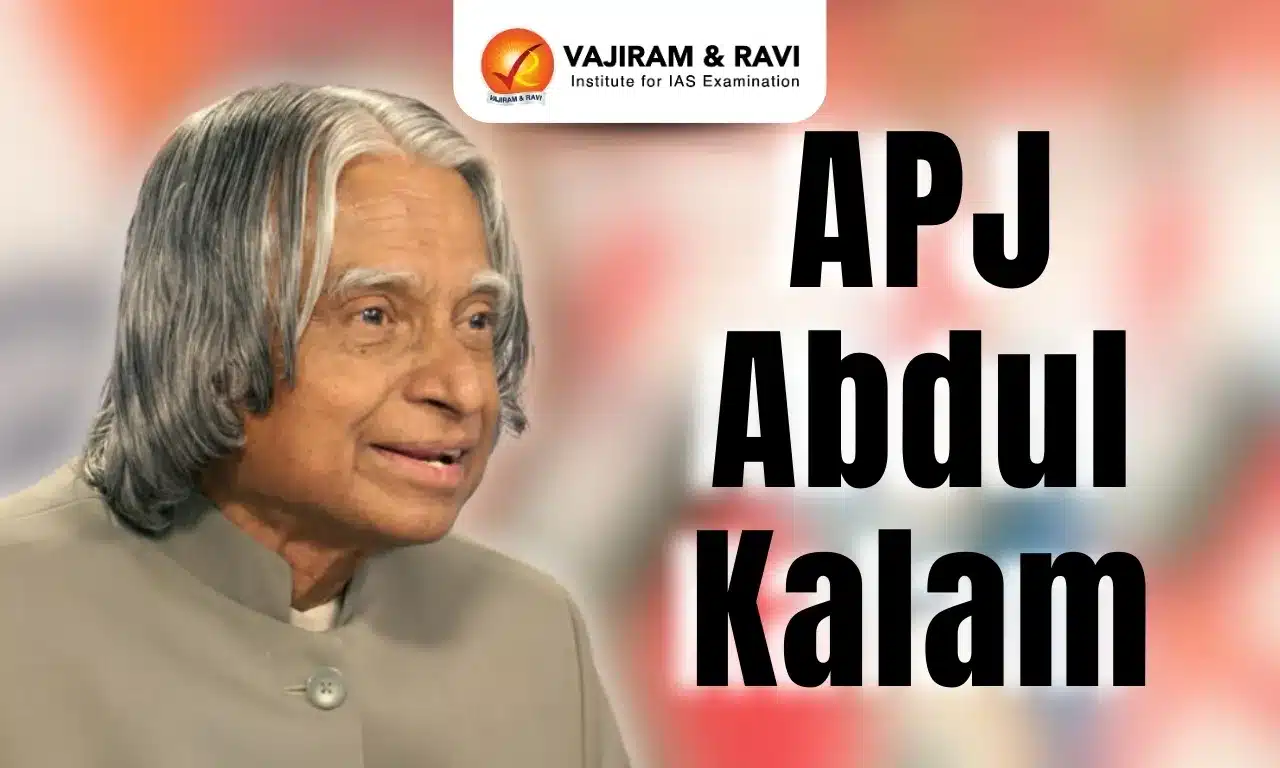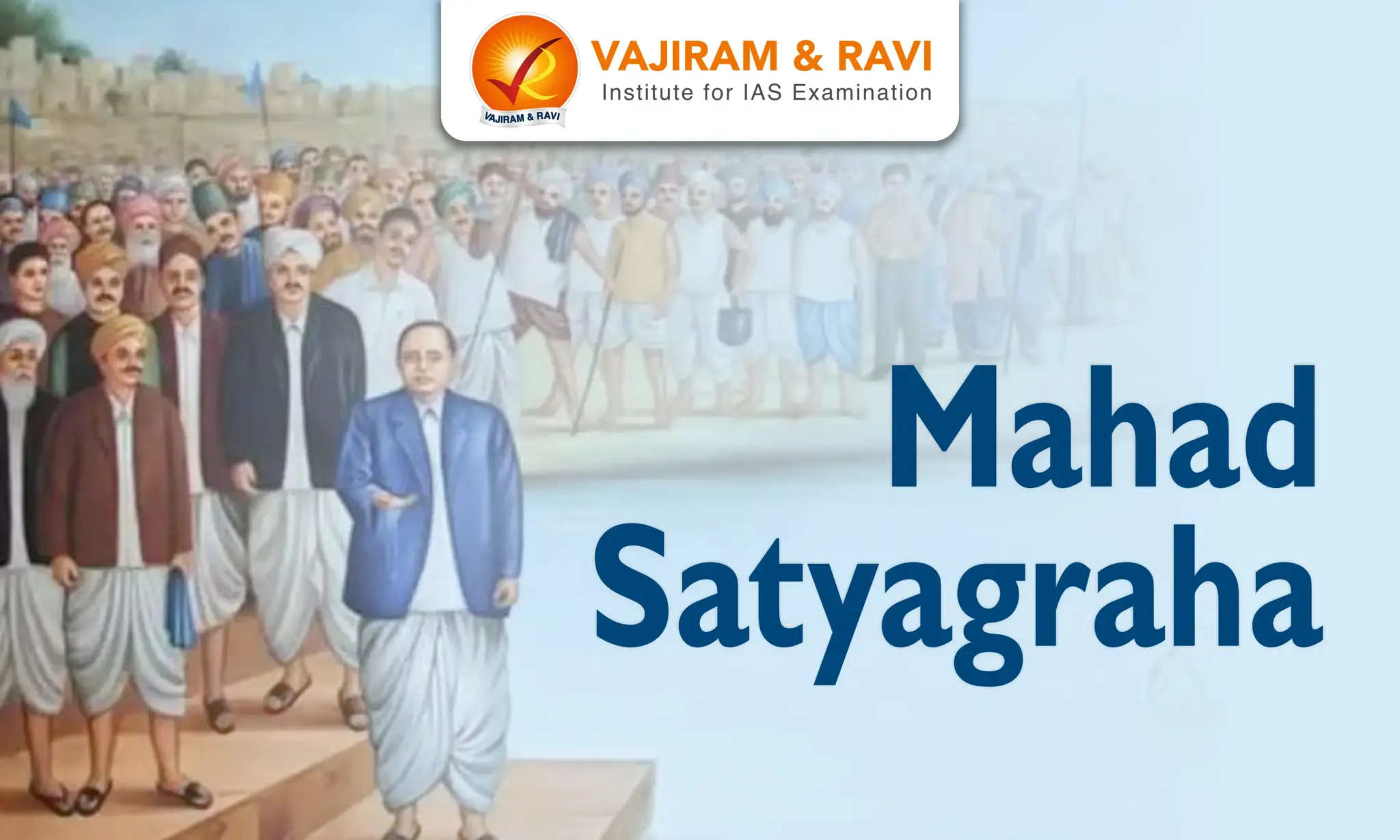Dr. Avul Pakir Jainulabdeen Abdul Kalam, commonly known as Dr. APJ Abdul Kalam, was an iconic Indian scientist, aerospace engineer, and visionary leader. Abdul Kalam served as the 11th President of India from 2002 to 2007 and is widely celebrated as the "People's President" for his immense contributions to science, technology, and the socio-economic development of India. He played a pivotal role in the development of India's ballistic missile and launch vehicle technology.
APJ Abdul Kalam
Dr. APJ Abdul Kalam, born on October 15, 1931, in Rameswaram, Tamil Nadu, was an exemplary scientist, statesman, and teacher who played a pivotal role in shaping India's nuclear capabilities, missile technology, and the nation's space endeavours. Kalam breathed his last on July 27, 2015, while delivering a lecture at IIM-Shillong.
APJ Abdul Kalam Early Life and Education
- Rameswaram roots: Dr. Kalam hailed from a modest background in Rameswaram. His father, Jainulabudeen, was a boat owner, and his mother, Ashiamma, was a housewife.
- Academic journey:
- APJ Kalam pursued a bachelor's degree in physics in 1954 fromTiruchirappalli.
- APJ Abdul Kalam received a degree in aeronautical engineering from Madras Institute of Technology.
APJ Abdul Kalam Career
Dr. APJ Abdul Kalam began a distinguished career that expertly combined science, technology, and defence, leaving an imprint on history.
- DRDO: Kalam began his career as a scientist at the Aeronautical Development Establishment of the Defense Research and Development Organisation (DRDO) in 1960.
- ISRO: Working alongside space scientist Vikram Sarabhai, Kalam was a member of the INCOSPAR committee.
- After joining the Indian Space Research Organisation (ISRO) in 1969, Kalam oversaw the development of SLV-III, India's first satellite launch vehicle.
- Missile Man of India:
- In the 1970s, Abdul Kalam oversaw the development of two projects;
- Project Devil and Project Valiant aimed to create ballistic missiles using the SLV program's successful technology.
- In 1982, Kalam oversaw the development of several successful missiles, including the Agni and Prithvi missiles, earning him the title of "Missile Man of India."
- In the 1970s, Abdul Kalam oversaw the development of two projects;
- Principle Scientific Advisor: He was the Principle Scientific Advisor to the Prime Minister of India from 1999 to 2001.
- He played a significant political and technological role during the Pokhran-II nuclear tests in 1998.
- Presidential tenure: In 2002, Dr. Kalam was elected as India's 11th President.
- He was the first scientist- President of India, with no political background.
APJ Abdul Kalam Contributions
Dr. APJ Abdul Kalam's contributions spanned various domains, making him a symbol of India's scientific excellence and technological advancements.
Space Technology
- SLV III: As Project Director, Dr. Abdul Kalam was instrumental in the development of India's first indigenous Satellite Launch Vehicle (SLV-III), which successfully injected the Rohini satellite into near-Earth orbit in July 1980.
- This achievement catapulted India into an exclusive club of space-exploring nations.
- PSLV: He was in charge of the evolution of ISRO's launch vehicle programme, specifically the PSLV (Polar Satellite Launch Vehicle) configuration.
Defence and Missile Technology
- Development of ballistic missiles: Kalam oversaw the projects Devil and Valiant, which aimed to develop ballistic missiles using the technology developed for the successful SLV programme.
- IGMDP: Dr. Kalam's leadership in the Integrated Guided Missile Development Program (IGMDP) led to the development of the Agni, an intermediate-range ballistic missile and Prithvi, a surface-to-surface missile, reinforcing India's defence capabilities.
- Pokhran-II: He was a pivotal figure in India's nuclear tests at Pokhran in 1998, which demonstrated India's nuclear capability and strengthened its security.
- Despite criticism, his unwavering pursuit of scientific excellence laid the groundwork for India's nuclear and space capabilities.
Healthcare
- Kalam-Raju Stent: Working with cardiologist Soma Raju, Abdul Kalam developed the 'Kalam-Raju Stent,' a low-cost coronary stent that aided in making healthcare accessible to all.
- It resulted in a significant reduction in the price of coronary stents, with a price reduction of more than 50% compared to when it was previously imported.
- Kalam-Raju Tablet: In 2012, Kalam and Soma Raju collaborated on the development of a rugged tablet computer for better healthcare administration in the country's rural areas. It was known as the Kalam-Raju tablet.'
Other
- Literature: Aside from his scientific and political contributions, Kalam was an accomplished author, having written acclaimed books such as “Wings of Fire”, “My Journey”," Indomitable Spirit", “Ignited Minds”, India 2020 and many more, which continue to inspire generations.
- Empowerment of youth: Kalam was a strong believer in the power of youth.
- He worked to empower Indian youth and encourage them to take up careers in science and technology.
- Social justice: Kalam was also a champion of social justice and equality. He worked to improve the lives of marginalised and disadvantaged groups in India.
- Technology Vision 2020: As Chairman of the Technology Information, Forecasting, and Assessment Council and an eminent scientist, he led the country with the help of 500 experts to arrive at Technology Vision 2020, which provides a road map for India's transition from developing to developed status.
Dr. APJ Abdul Kalam Awards and Honours
Dr. Abdul Kalam's unparalleled contributions to S&T and his dedication to advancing the nation have earned him numerous accolades and recognitions.
- Awards:
- Von Braun Award from the National Space Society
- Indira Gandhi Award for National Integration
- Veer Savarkar Award
- Padma Bhushan, Padma Vibhushan
- Bharat Ratna in 1997
- Honours:
- He received honorary doctorates from 30 universities and institutions.
- His birthday is celebrated as "Youth Renaissance Day" in Tamil Nadu
- The new bacteria was discovered on the filters of the International Space Station by researchers at NASA's Jet Propulsion Laboratory, who named it Solibacillus Kalamii in honour of Abdul Kalam.
- Wheeler Island, a national missile test site in Odisha, was renamed Abdul Kalam Island.
Last updated on November, 2025
→ Check out the latest UPSC Syllabus 2026 here.
→ Join Vajiram & Ravi’s Interview Guidance Programme for expert help to crack your final UPSC stage.
→ UPSC Mains Result 2025 is now out.
→ UPSC Notification 2026 is scheduled to be released on January 14, 2026.
→ UPSC Calendar 2026 is released on 15th May, 2025.
→ The UPSC Vacancy 2025 were released 1129, out of which 979 were for UPSC CSE and remaining 150 are for UPSC IFoS.
→ UPSC Prelims 2026 will be conducted on 24th May, 2026 & UPSC Mains 2026 will be conducted on 21st August 2026.
→ The UPSC Selection Process is of 3 stages-Prelims, Mains and Interview.
→ UPSC Result 2024 is released with latest UPSC Marksheet 2024. Check Now!
→ UPSC Prelims Result 2025 is out now for the CSE held on 25 May 2025.
→ UPSC Toppers List 2024 is released now. Shakti Dubey is UPSC AIR 1 2024 Topper.
→ UPSC Prelims Question Paper 2025 and Unofficial Prelims Answer Key 2025 are available now.
→ UPSC Mains Question Paper 2025 is out for Essay, GS 1, 2, 3 & GS 4.
→ UPSC Mains Indian Language Question Paper 2025 is now out.
→ UPSC Mains Optional Question Paper 2025 is now out.
→ Also check Best IAS Coaching in Delhi
APJ Abdul Kalam FAQs
Q1. Who was Dr. APJ Abdul Kalam?+
Q2. What was Abdul Kalam famous for?+
Q3. What are Dr. Kalam's notable achievements in the field of space technology?+
Q4. Why is Kalam called the Missile Man of India?+
Q5. Where is Abdul Kalam Island located?+
Tags: apj abdul kalam quest

















